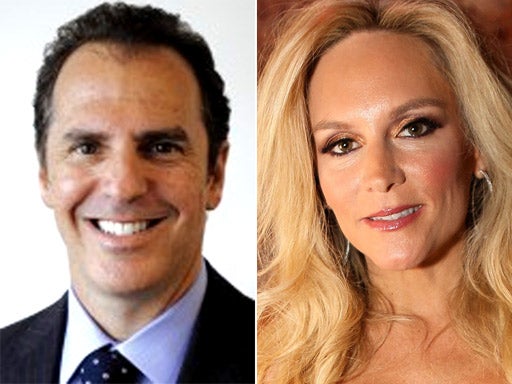The millionaire, his pop star wife and the fall of a high-street giant
Henry Jackson's OpCapita bought Comet for £2 – and could walk away with millions

Your support helps us to tell the story
From reproductive rights to climate change to Big Tech, The Independent is on the ground when the story is developing. Whether it's investigating the financials of Elon Musk's pro-Trump PAC or producing our latest documentary, 'The A Word', which shines a light on the American women fighting for reproductive rights, we know how important it is to parse out the facts from the messaging.
At such a critical moment in US history, we need reporters on the ground. Your donation allows us to keep sending journalists to speak to both sides of the story.
The Independent is trusted by Americans across the entire political spectrum. And unlike many other quality news outlets, we choose not to lock Americans out of our reporting and analysis with paywalls. We believe quality journalism should be available to everyone, paid for by those who can afford it.
Your support makes all the difference.After releasing an album and three singles, one featuring the rapper Snoop Dogg, the Canadian-born pop singer Stacey Jackson appeared to be enjoying another carefree day yesterday.
Having spent the weekend in Los Angeles for a series of what she called "super-productive" meetings, the glamorous wife of American financier Henry Jackson told her Twitter followers: "I've suddenly developed an addiction to pop chips! They are so yummy and totally guilt-free!"
Whether or not her husband has such a clear conscience is open to question, for Mr Jackson is the chief executive of OpCapita, a US investment company that acquired the British high-street electricals chain Comet this year, and led it into administration last week.
While the Jackson family enjoys a well-heeled lifestyle in Chelsea, west London, more than 6,600 Comet staff face redundancy after administrators were called in on Friday – nine months after OpCapita acquired the 236-store chain for a token £2.
As secured creditors, Mr Jackson's OpCapita and its backers could well receive the lion's share of a possible £50m liquidation sale of Comet, which was losing £35m at the time of the acquisition.
John Gorle, of the Union of Shop, Distributive and Allied Workers, said: "This will really stick in the craw of Comet's 6,600 staff and it should also anger taxpayers, who could end up footing the bill for any unpaid wages and redundancy pay."
Public anger at the way the administration has been handled so far has centred on the refusal to honour gift cards bought before Comet's collapse. At the weekend, Maria Horton, of Plymouth, was prevented from using a £500 voucher from the Family Fund charity to buy an iPad for her four-year-old son, Samuel, who has cerebral palsy.
Perhaps sensing the growing backlash, the administrator Deloitte last night said it would accept gift cards and fulfil purchases made before the administration where stock was available. Neville Kahn, the joint administrator, who led the administration of Woolworths, also raised hopes for a sale of parts of the business. He said: "We are progressing discussions with a number of interested parties."
However, The Independent understands that Deloitte is considering a stock fire-sale this week, and branches could close before Christmas.
Under its previous guise as Merchant Equity Partners, OpCapita acquired the flat-pack furniture retailer MFI for a nominal £1 in 2006. While MFI collapsed into administration in November 2008 and then disappeared, OpCapita has since reported that it made a "small profit" from the chain.
The Labour MP Alan Johnson said: "Comet's employees seem to be the unfortunate victims of a short-term investment strategy which is not untypical of this kind of private equity company." Comet said in May that its call centre in Hull, where Mr Johnson is an MP, was to close and moved to Bristol resulting in 240 jobs losses.
There are likely to be no such financial worries for OpCapita and other investors in Comet, such as London-based Greybull Capital, as they have placed the £50m dowry, £30m working capital and £40m of asset-backed loans into an investment vehicle to protect their money.
Ian Fletcher, of the British Property Federation, said: "It is Comet's staff and unsecured creditors, such as landlords, who may lose out while OpCapita seemingly takes its money back.
"This injustice further underlines the need for a wide-ranging review of the insolvency regime."
Subscribe to Independent Premium to bookmark this article
Want to bookmark your favourite articles and stories to read or reference later? Start your Independent Premium subscription today.
Join our commenting forum
Join thought-provoking conversations, follow other Independent readers and see their replies
Comments